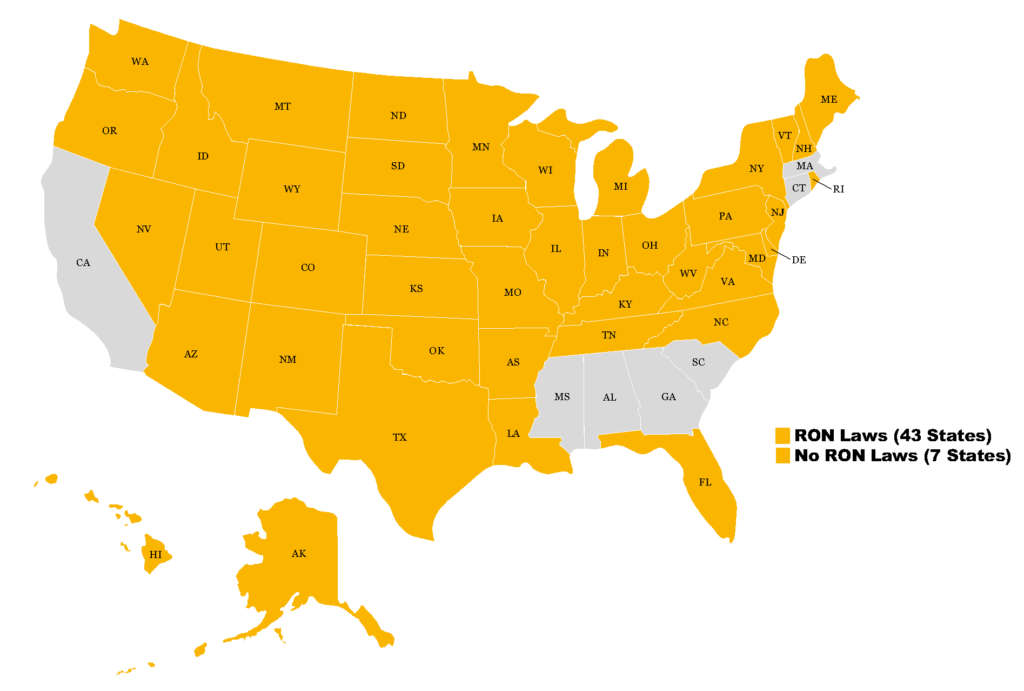RON: Now Available in 43 States

Delaware, Rhode Island, and North Carolina are the latest states to pass bills that allow for remote online notarization (RON).
Rhode Island’s legislation goes into effect immediately. The legislation awaits the signature of Gov. Dan McKee. The legislation adopts the Uniform Law Commission’s Revised Uniform Law on Notarial Acts.
Delaware’s law conforms with at least 20 states, which currently allow remote notarization and notarization of electronic records and include updated provisions that enhance the integrity of the process of performing notarial acts.
Adoption of the law is delayed until Jan. 1, 2023, to provide the Secretary of State and notaries public time to implement the Revised Uniform Law. In the interim, this act continues the authority for Delaware attorneys to conduct remote notarization.
North Carolina passed a bill that permits the use of remote online notarization (RON). Gov. Roy Cooper signed the bill July 8. The statute will go into effect July 1, 2023. Several RON platform providers have raised concerns about a provision in the statute that requires notaries to verify the geolocation via communication technology of the remotely located principal. In addition, the ability to provide the geolocation of the remotely located principal is a requirement for a RON platform provider to get licensed by the Secretary of State.
One key distinction from other state statutes is a requirement that the principal must be located in the U.S. or if not in the country, the principal must be on the military installation or vessel named in the military orders assigning the member to active duty for more than 120 days, provided the remotely located principal is a member, spouse of a member or dependent of a member of the Armed Forces of the United States. If outside the United States, the principal must be at a U.S. Embassy, Consulate, or Diplomatic Mission. Another key distinction is that a remotely notarized power of attorney may not be used for a RON closing.
The North Carolina statute says that any notary who is not a licensed North Carolina attorney is prohibited from rendering services or advice that constitutes the practice of law in the state.

